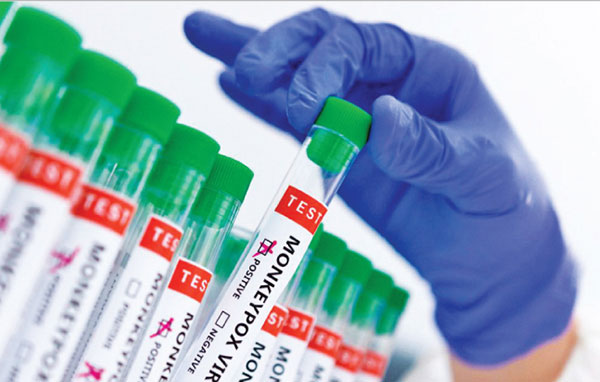The World Health Organization (WHO) believes that measures such as basic cleanliness and safe sexual behavior can help prevent the spread of Monkeypox outside of Africa, according to a top official on Monday.
Dr Richard Pebody, WHO Europe’s high-threat pathogen team leader, told Reuters that immediate supplies of vaccinations and antivirals are quite limited.
His remarks came after the US Centers for Disease Control and Prevention (CDC) announced that certain Jynneos vaccine doses will be made available for use in Monkeypox cases.
In the greatest epidemic of the virus outside of Africa, public health officials in Europe and North America are examining more than 100 suspected and confirmed cases of viral infection.
Contact tracking and isolation are the essential tactics for controlling the epidemic, he added, emphasizing that the virus does not spread quickly and has not yet caused major sickness.
“We are not in a position to move to extensive immunization of communities,” he stated.
Meanwhile, the US is ready to distribute Monkeypox vaccinations to close contacts of those who have been affected, as well as to deploy treatments, with five cases confirmed or probable and the number expected to climb, authorities said Monday.
In terms of supplies, the US has around 1,000 doses of JYNNEOS, a Food and Drug Administration (FDA) licensed vaccine for smallpox and monkeypox, “and you can expect that number to ramp up pretty fast in the following weeks as the business gives additional doses to us,” McQuiston said. It also holds around 100 million doses of ACAM2000, an earlier generation vaccination.
Meanwhile, UNAIDS issued a statement on Sunday decrying Monkeypox coverage that includes “portrayals of LGBTI and African people” that “reinforce homophobic and racist stereotypes and perpetuate stigma.”
“Lessons from the AIDS response suggest that stigma and blame aimed at certain categories of individuals may quickly hinder epidemic response,” according to the group’s statement.
According to the UN, a “substantial number” of the cases recorded thus far have been “identified among homosexual, bisexual, and other males who have intercourse with men, with some instances detected through sexual health clinics.”
“Media, governments, and communities must respond with a rights-based, evidence-based strategy that eliminates stigma,” it said.

